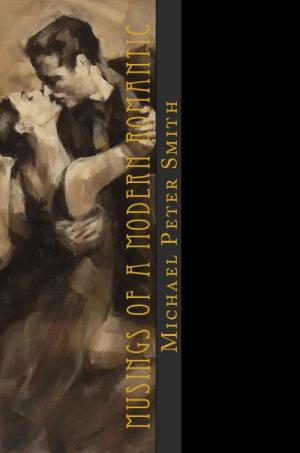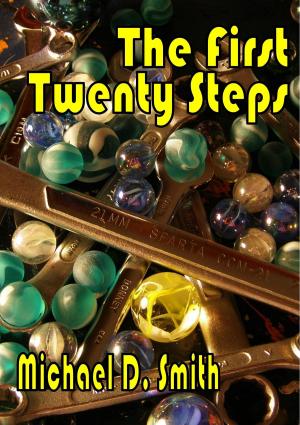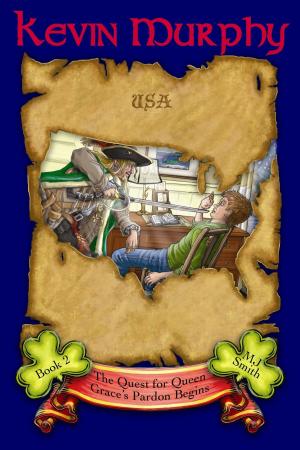Hounded! A Reluctant Spiritual Journey
Nonfiction, Religion & Spirituality, Christianity, General Christianity| Author: | Michael Smith | ISBN: | 9781465840936 |
| Publisher: | Michael Smith | Publication: | November 8, 2011 |
| Imprint: | Smashwords Edition | Language: | English |
| Author: | Michael Smith |
| ISBN: | 9781465840936 |
| Publisher: | Michael Smith |
| Publication: | November 8, 2011 |
| Imprint: | Smashwords Edition |
| Language: | English |
Have you ever been hounded, I mean really hounded over a long period of time? I have. But having said that, I have to admit it was a very different kind of on and off hounding, but hounding nonetheless, that has been going on for about twenty-five years. It started at a Good Friday church service when the lay presider asked the five hundred or so people in attendance, "Why did Jesus have to die?" In a few seconds, before I had time to start considering his question, he added, "That's the most important question you’ll ever think about," and then gave the congregation a few minutes to start their consideration before he resumed the service. As I sat in the pew thinking about the question, I had no idea how right the presider was about the question being the most important one I would ever consider or how it would hound me until I finally took the time to answer it.
My first thought was the question seemed very strange since all of my religion and theology teachers from grade school through college had consistently taught Jesus died as a sacrifice to atone for our sins and since the Resurrection is central to Christianity, Jesus needed to die so He could rise from the dead. I honestly believed it was an open and shut case and was quite puzzled by the fact the question was even raised when the answer was so obvious. My initial conclusion was the presider might need to go back to school. Foolish me!
After giving the question a bit more thought, I began to realize I considered the ‘sacrifice to atone for our sins’ explanation a bit inadequate in light of some of God’s statements like the one in Hosea 6:6 which Jesus quoted twice in Matthew’s gospel.
“I want mercy and not sacrifice. I want you to recognize me as God instead of bringing me burnt offerings.”
While I realized there was no comparison between Jesus’ death on a cross and the burnt offerings of the Old Testament, I had a difficult time justifying how the God who said He did not want sacrifices in Hosea, could at the same time demand His Son as a sacrifice to atone for our sins. After considering the question a bit more, it also seemed to me that Jesus’ death, if it were to atone for sins, would change nothing in us humans and we would continue sinning. I have always believed Jesus came into the world because things needed to change and He was sent to show mankind how to live in a new more fulfilling and rewarding way. I began to wonder if there was more to Jesus’ death on the cross than the atonement for sins reason alone, but I did not know with any certainty what it could be and I like to know the reason behind everything.
After nine months of research I found an answer which satisfied me but I decided to lock it away for fear of deserving the millstone treatment promised to those who lead others astray. I finally, as a means of dealing with my fear, decided to make it available, not as a fact, but as a starting point for further thought—this time it’s your turn to think about this important question.
Have you ever been hounded, I mean really hounded over a long period of time? I have. But having said that, I have to admit it was a very different kind of on and off hounding, but hounding nonetheless, that has been going on for about twenty-five years. It started at a Good Friday church service when the lay presider asked the five hundred or so people in attendance, "Why did Jesus have to die?" In a few seconds, before I had time to start considering his question, he added, "That's the most important question you’ll ever think about," and then gave the congregation a few minutes to start their consideration before he resumed the service. As I sat in the pew thinking about the question, I had no idea how right the presider was about the question being the most important one I would ever consider or how it would hound me until I finally took the time to answer it.
My first thought was the question seemed very strange since all of my religion and theology teachers from grade school through college had consistently taught Jesus died as a sacrifice to atone for our sins and since the Resurrection is central to Christianity, Jesus needed to die so He could rise from the dead. I honestly believed it was an open and shut case and was quite puzzled by the fact the question was even raised when the answer was so obvious. My initial conclusion was the presider might need to go back to school. Foolish me!
After giving the question a bit more thought, I began to realize I considered the ‘sacrifice to atone for our sins’ explanation a bit inadequate in light of some of God’s statements like the one in Hosea 6:6 which Jesus quoted twice in Matthew’s gospel.
“I want mercy and not sacrifice. I want you to recognize me as God instead of bringing me burnt offerings.”
While I realized there was no comparison between Jesus’ death on a cross and the burnt offerings of the Old Testament, I had a difficult time justifying how the God who said He did not want sacrifices in Hosea, could at the same time demand His Son as a sacrifice to atone for our sins. After considering the question a bit more, it also seemed to me that Jesus’ death, if it were to atone for sins, would change nothing in us humans and we would continue sinning. I have always believed Jesus came into the world because things needed to change and He was sent to show mankind how to live in a new more fulfilling and rewarding way. I began to wonder if there was more to Jesus’ death on the cross than the atonement for sins reason alone, but I did not know with any certainty what it could be and I like to know the reason behind everything.
After nine months of research I found an answer which satisfied me but I decided to lock it away for fear of deserving the millstone treatment promised to those who lead others astray. I finally, as a means of dealing with my fear, decided to make it available, not as a fact, but as a starting point for further thought—this time it’s your turn to think about this important question.















